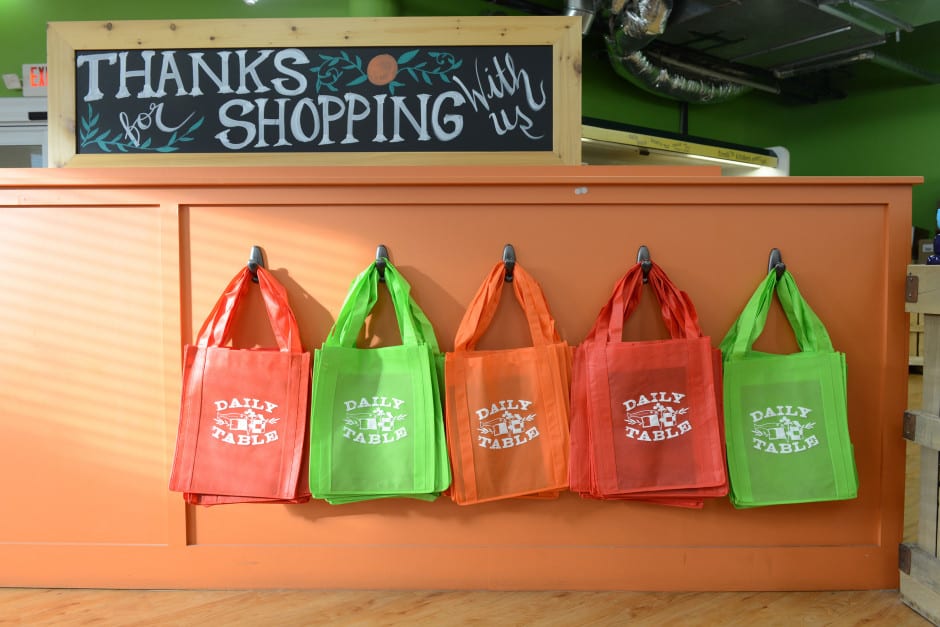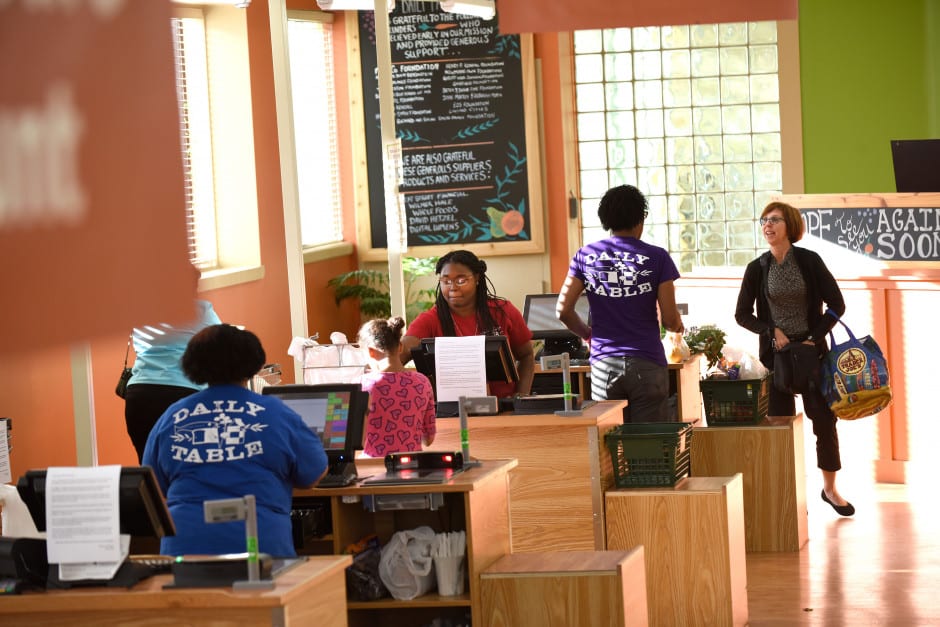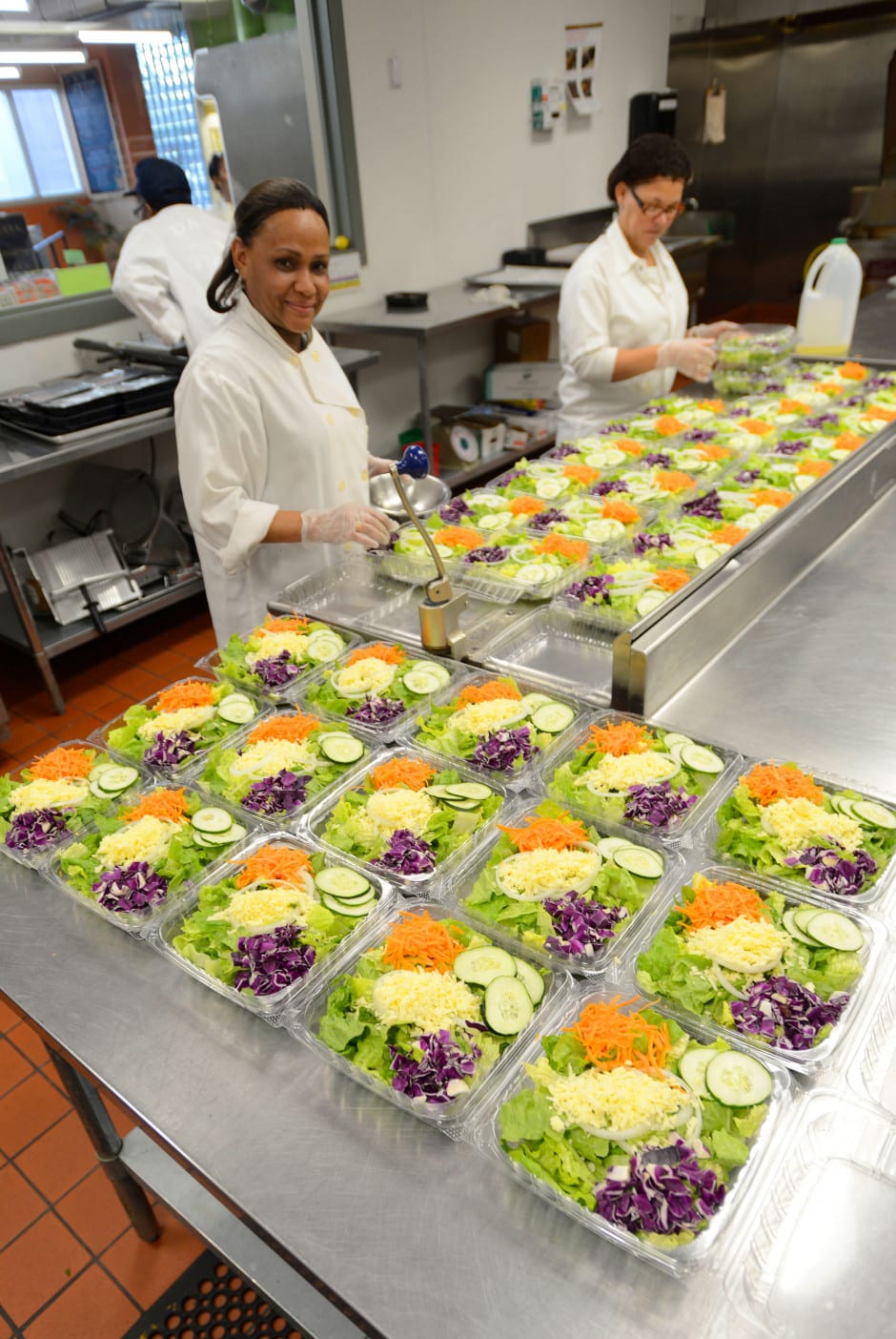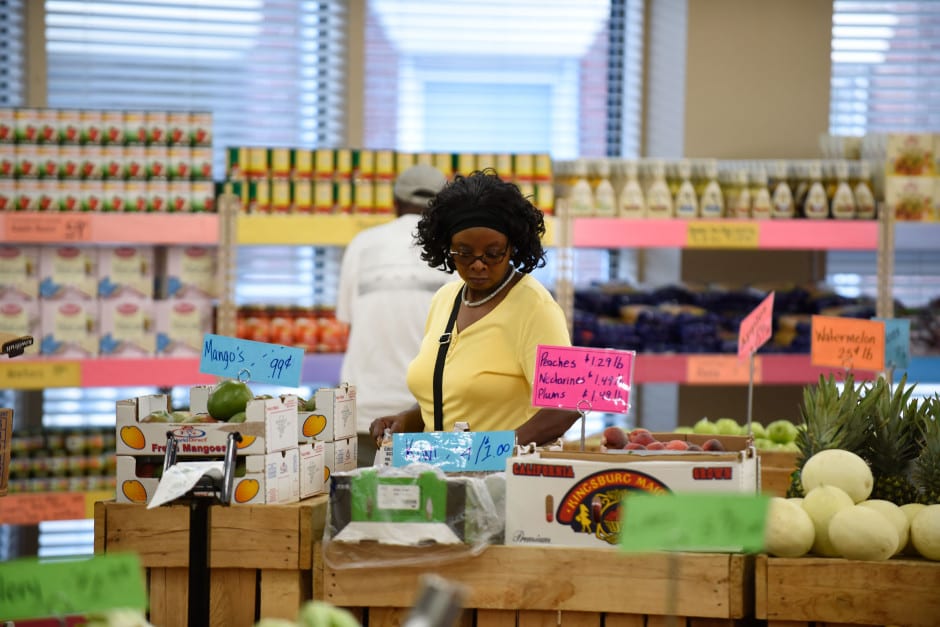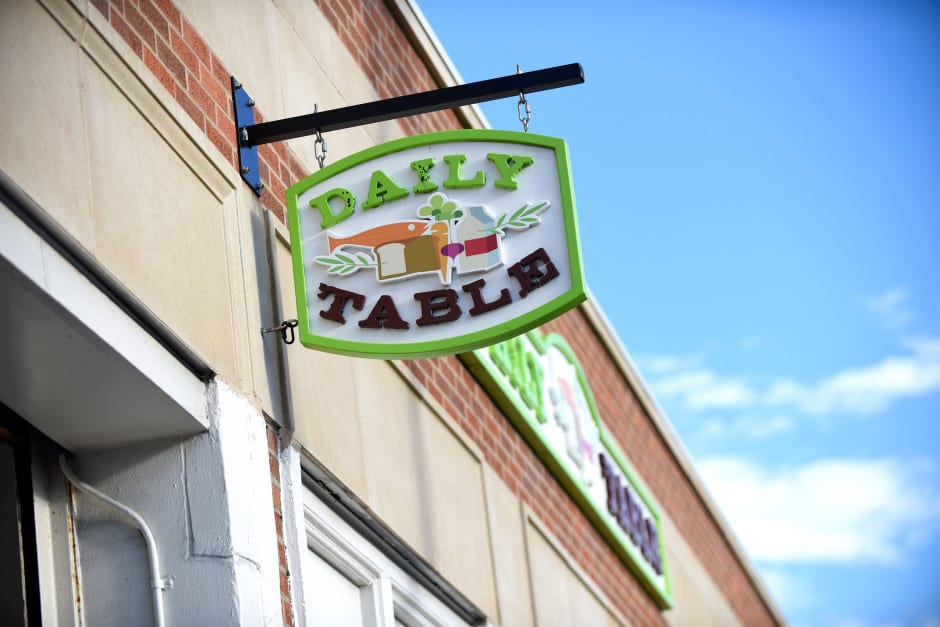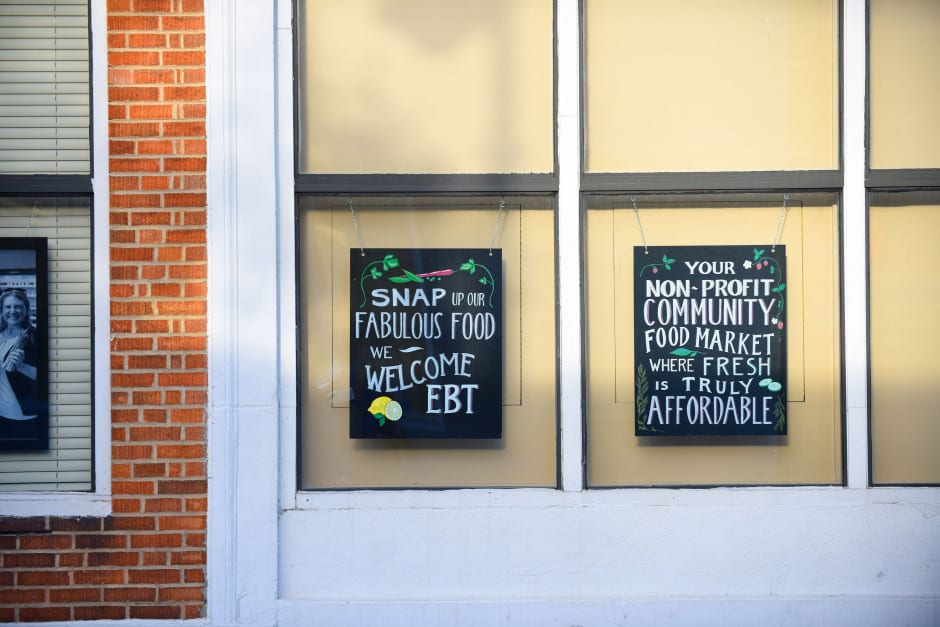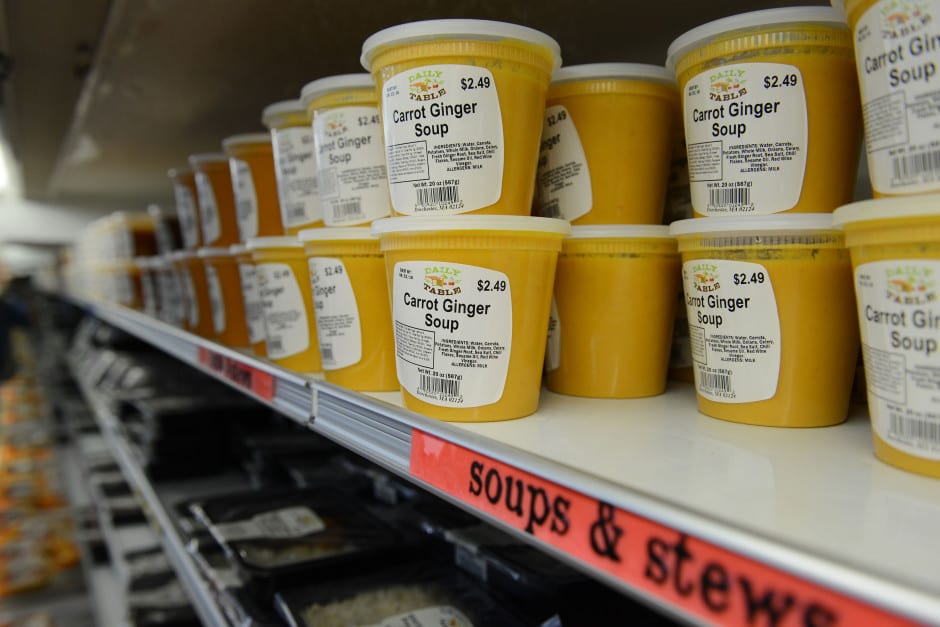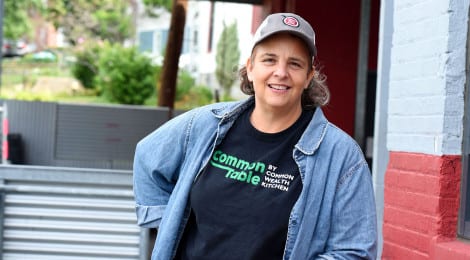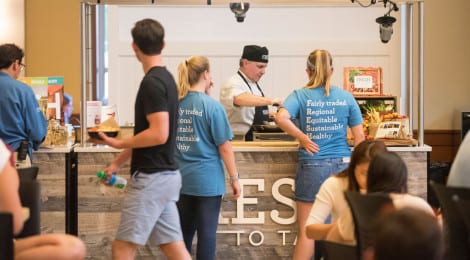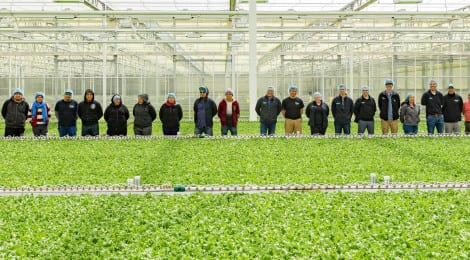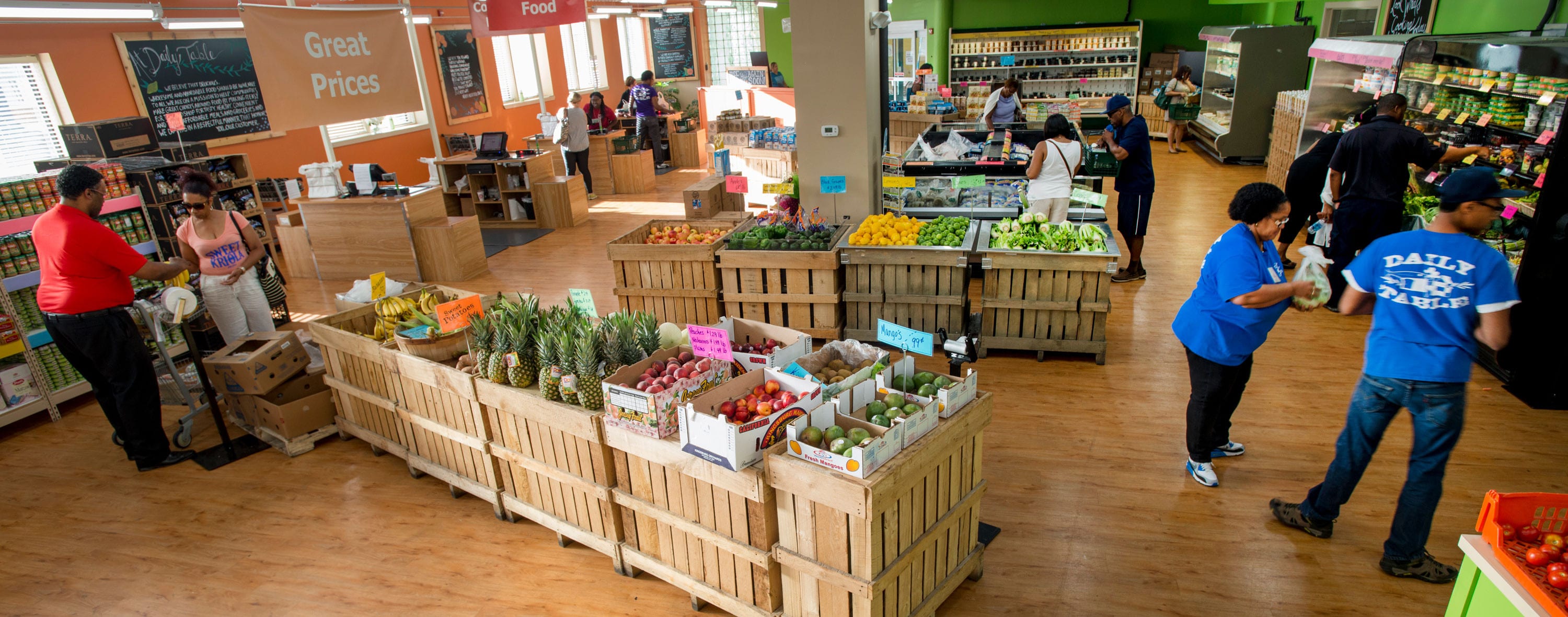
Grantee Profile
A New Kind of Neighborhood Grocery Store
At first glance, Daily Table looks like your typical Dorchester neighborhood grocery store. When you walk through the doors, you’re immediately greeted by hand-written chalkboard signs hanging above fresh produce that read “Community Focused,” “Reward Yourself,” “Great Value,” and “Great Food.” Through a big window, you can see chefs hard at work in the kitchen – busily preparing salads, ready-to-eat meals, and other items created from the batches of produce that came in that day. Volunteers are setting up tasting stations (such as farm fresh tomatoes on locally baked bread with a sprinkle of sea salt), re-stocking shelves, and talking to customers. Look a bit closer, however, and you’ll realize something revolutionary is happening. Daily Table, which opened its doors to customers in June of 2015, is working to address the nation-wide issue of food insecurity by focusing on reducing local food waste.
In the U.S., we waste up to 40% of the food we produce – totaling over 80 billion pounds of food waste every year. This not only includes the food that people buy and throw out before using at home, but also includes food that goes beyond its code date in grocery stores and produce that isn’t considered “pretty” enough to even make it onto the shelves. At the same time, more than 48 million Americans live in food insecure households, where people lack reliable access to affordable, nutritious food.
Daily Table was founded by Doug Rauch, former president of Trader Joe’s, in an effort to address this food paradox. Fredi Shonkoff, Senior Director of Daily Table, says the goal was to create a place where local people would be able to get everything they need to create a healthy, affordable meal for themselves and their family. While other organizations work on similar food insecurity issues, Daily Table was one of the first to address both food waste recovery and food access in such an innovative way. The store receives its food donations from local manufacturers and producers (such as Cedar’s and Newman’s Own), and works within guidelines set by a panel of nutritionists to create healthy, culturally-relevant dishes. Since the ingredients come primarily from donations and surplus, Daily Table is able to keep prices low; for example, mix-and-match meals in the prepared foods section average around $2.50.
Shonkoff stressed the store’s commitment to the local community. Most of the customers at Daily Table live in the neighborhood; the store does require customers to become members to shop (providing your zip code), but anyone is welcome. Daily Table is also open before and after traditional work hours, as well as long weekend hours. Most of the store’s staff are locals too; currently, 80-90% of Daily Table employees live within 3 miles of the store.
Daily Table owes much of its success to the hard work of its staff and large force of volunteers, who do most of the food prep and sort through donations the store receives. Shonkoff says that to date, around 9,000 volunteer hours have been served, saving the store about $99,000 since it opened. The impact of the volunteers trickles down into the kitchen as well, where chef Ismail Samad is able to focus on organizing his team and getting creative with the more “out of the box” donations they get. The strangest by far, he says, was an order of purslane (an edible succulent) that came in last year.
Samad came to Daily Table from The Gleanery, a restaurant he co-founded in Putney, VT, that focused on taking surplus food and turning it into a high-end dining experience. At Daily Table, however, he doesn’t have as many ingredients at his fingertips to create upscale dishes, and he has to cook with less salt and fat than he’d typically use in a restaurant kitchen. That doesn’t stop Samad from making creative, delicious meals, though. He uses familiar spices and flavors to make unknown ingredients seem more accessible, and the store frequently has samples out for customers to try.
Prior to Daily Table’s opening, there was concern from some community members that people wouldn’t want to shop at a store with “expired, second hand” food. Those concerns all but evaporated once the store opened – now, shoppers are singing their praises. To celebrate the store’s 1-year anniversary, they held a raffle. To enter, customers had to finish the sentence, “I shop at Daily Table because ____.” Thousands of responses poured in: “I shop at Daily Table because it helps so much to take care of my children as a single mother,” “…because I can feed my children well without breaking my bank account,” “… because we try new foods every week,” “…because they are local,” “…because I love you guys,” and “…because I can now afford to eat quality!”
Daily Table has truly managed to find balance and perhaps an answer to the food paradox. It’s not a “discount grocery store” or a “store where expired food is sold,” but a place where customers can have a dignified – and delicious – shopping experience. In the past year, the average amount of money spent per basket has increased from $8.00 to $14.00, showing that food purchased at Daily Table is becoming a larger part of customers’ diets. As a start-up, unrestricted grants from the Kendall Foundation allowed them to withstand the ebb and flow of their first year, so that the community can reap the rewards of the Daily Table vision. The Dorchester location will also become an organizational hub once more stores open – a second Boston location is scheduled to launch in Spring 2017. Daily Table also aims to become financially independent by selling food produced in the Dorchester kitchen in the other stores. With this projected growth, the number of people who benefit from Daily Table will only increase. “From a mission perspective,” says Shonkoff, “we’ve hit a home run.”
Learn more: Daily Table
The goal was to create a place where local people would be able to get everything they need to create a healthy, affordable meal for themselves and their family.
